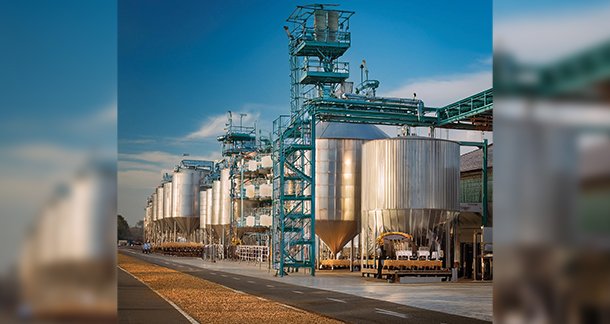The food processing industry is witnessing huge changes, mainly due to the continuous framework evolutions. All these are focused on improving food safety, quality, and consumer protection. Industry had to make this shift as consumers are getting more aware about their health. Moreover, technological advancements are happening simultaneously. The global food processing market is expected to have a CAGR of 7% from 2024 to 2031, according to Cognitive Market Research.
So, businesses and organisations should adopt these regulations to ensure compliance and stay ahead in the market.
Current State Before Changes
The food processing industry went through many regulations that mainly varied by region and product type. Operating under outdated guidelines was normal for many companies without addressing the advancements and globalisation. If we talk about India, a Deloitte study indicated that food processing levels are too low for global standards. They stated that only 4.5% of fruits and 2.7% of vegetables are processed and ready for consumption. This was an inconsistency that often created confusion among food processors regarding compliance requirements.
Plus, many businesses struggled to grow at the speed of rapid changes and were not able to fulfil consumer expectations regarding transparency and sustainability. This was the time when a more cohesive regulatory framework was much needed because this system was also a concern for investors.
Reasons for Regulatory Changes
The need for regulatory changes in the food processing sector has arisen from several critical factors:
Globalisation of Food Supply Chains:
The potential for contamination and adulteration has increased as food products are sourced from various countries and regions. This time, stricter regulations are necessary so that consumers can avoid unsafe food products.
Advancements in Food Technology:
New processing methods and ingredients have emerged and so has the requirement to update existing regulations. This will ensure they remain relevant and effective in addressing safety concerns.
Consumer demand for transparency:
Today’s consumers are more informed and concerned about what they are eating. If this is not the time for stricter labelling requirements and accountability, then there will be no requirement for this industry.
Public health concerns:
Many foodborne illness incidents were seen that sparked the need for enhanced food safety measures. Around 48 million people get sick from foodborne illness, according to the CDC. This led to 128,000 hospitalisations and 3,000 deaths in the US. Regulatory bodies are also responding to it with more stringent testing and inspection protocols.
Sustainability Initiatives:
Consumers are giving priority to sustainability, and this is why regulatory guidelines are made to encourage environmentally friendly practices within the food processing sector.

Overview of Recent Regulatory Changes
Recent regulatory changes impacting food processing have focused on several key areas:
Food Safety Modernisation Act (FSMA):
This act forces adopt a proactive approach to food safety in the US. This act led to the development of comprehensive plans that identify potential hazards and implement preventive controls. This was a huge shift from reactive measures to preventive strategies. Everything was focused on how they can reduce foodborne illnesses.
Global Food Safety Initiative (GFSI) Standards:
Food processors have to adhere to rigorous safety audits due to these universal standards. This makes sure that the product stays safe while enhancing marketability. Companies and brands can improve their reputation by complying with GFSI standards.
Labelling Regulations:
Stricter labelling requirements mandate clear disclosures about ingredients, allergens (including allergens like sesame), and nutritional information. These are the FDA’s new labelling guidelines, mainly to spread knowledge to consumers regarding their food choices.
Sustainability Regulations:
New guidelines promote environmentally friendly practices in sourcing and production processes. For example, regulations are encouraging reduced plastic use and it is becoming more prevalent because consumers are demanding sustainable packaging options.
Traceability Requirements:
Traceability regulations require food processors to maintain detailed records of their supply chains. This is because ensuring accountability and a quick response in case of contamination or recall. Blockchain technology is also helping to improve traceability.
Implications for Businesses
The recent regulatory changes present both challenges and opportunities for businesses in the food processing industry. These are some implications one should focus on:
- Compliance Costs
- Operational Adjustments
- Enhanced Consumer Trust
- Competitive Advantage
- Risk Mitigation
More than that, businesses must invest in training staff on new regulations. New technology solutions are already mandatory for compliance tracking.
Conclusion
So, this was all about regulatory changes and how they are impacting the food processing industry. This is the time when businesses have to understand these changes and act accordingly. This is not just to get an edge in the market but to understand that these regulations will also be crucial for ensuring public health.
Plus, compliance with these guidelines will directly impact a brand’s reputation in a positive way. Most of these changes can be adopted by just increasing transparency and accountability. This will eventually benefit both businesses and consumers for their obvious set of reasons. Hope this helped get an insight; stay tuned for more updates.



